Building skills for better care: Area specific capabilities frameworks
As healthcare changes, the skills of healthcare workers need to change too. That is why the Centre for Advancing Practice is en area-specific capabilities frameworks.
These are clear and structured learning frameworks. They help experienced healthcare professionals gain the skills they need to take on more advanced roles. All based on what patients and communities need most.
🎥 Watch our short animation to see how these frameworks are shaping the future of care. (Please note that this animation uses the term “Credentials” rather than “area specific capabilities”)
Update: A shift in terminology – from credentials to area specific capabilities
To make things clearer and more intuitive, what were previously credentials are now known as Area-Specific Capabilities Frameworks.
Why the change?
This new name makes it clearer what these frameworks are for. They show the exact skills needed in different areas of advanced practice. It also helps make advanced practice easier to understand, more consistent, and more open for everyone.

Recognition remains simple and accessible through the Centre’s digital badging system. The ‘Advanced’ badge continues to represent the level of practice, not the specialty.
What are area-specific capabilities frameworks?
These frameworks outline the essential knowledge, skills, and behaviours needed for advanced practice in specific areas of healthcare. They help ensure that practitioners are well-prepared to deliver high-quality, safe, and effective care.
Each framework includes:
- Clearly defined capabilities tailored to clinical or professional areas
- Guidance for education providers, supervisors, and employers on supporting learning and assessment
- Alignment with national standards and the Multi-professional Framework for Advanced Practice (2025)
- Support for both individual development and workforce planning
These frameworks are openly available and designed for use by education providers. They are mostly delivered as part of a university’s Centre-accredited Master’s degree in Advanced Practice.
What is the Centre’s role?
- Leads development
The Centre identifies priority areas where advanced practice is most needed. Based on population health trends, service demands, and workforce gaps. It then collaborates with experts to develop area specific capabilities frameworks that reflect these needs.
- Endorses, ensuring quality and consistency
Every framework goes through a rigorous, independent review process. This ensures that the capabilities outlined are evidence-based, aligned with national standards, and suitable for real-world application.
- Supports education providers
The Centre provides guidance to help education providers implement these frameworks, most normally as part of accredited master’s programmes.
- Drives recognition and confidence
Through its digital badging system, the Centre recognises practitioners who meet advanced-level standards. This helps employers and patients easily identify professionals with verified advanced capabilities.
- Monitors and reviews
The Centre reviews endorsed frameworks to ensure they remain up to date and responsive to changing healthcare needs.
By leading this work, the Centre helps build a stronger advanced practice workforce. One that is ready to face the challenges of today’s healthcare.
Update
The Centre for Advancing Practice has reviewed its activities related to future development and endorsement of area-specific capabilities (previously called ‘credentials’). Currently, the Centre is progressing the pending area-specific capability and curriculum frameworks it has supported for development, aiming to endorse them as Centre-endorsed frameworks.
Due to the ongoing merger plans between NHS England and the Department of Health and Social Care (DHSC), and the need to optimise resources, the Centre has decided to pause the development of new area-specific capability and curriculum frameworks. It will also pause endorsing similar frameworks developed by other organisations, such as professional bodies or specialty forums/groups.
Instead, the Centre will focus on endorsing the pending area-specific capability and curriculum frameworks it has been supporting. It will also facilitate the uptake of its existing endorsed frameworks by universities, by aligning that uptake with its accreditation processes for MSc advanced practice programmes.
Once the transition process for NHS England and DHSC is complete, the Centre will re-evaluate its position on developing and endorsing new area-specific capability and curriculum frameworks.